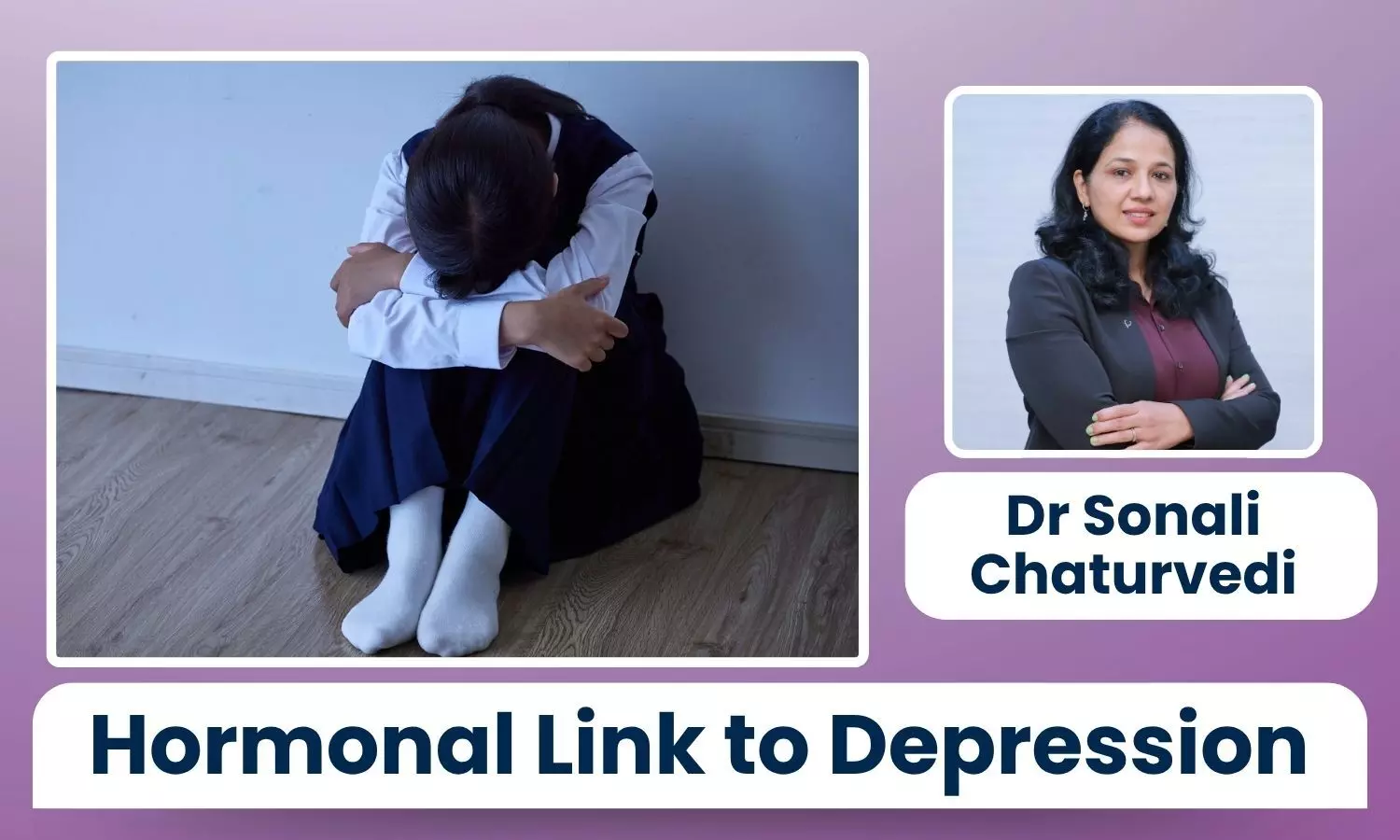Premenstrual Dysphoric Disorder: The Hormonal Link to Depression - Dr Sonali Chaturvedi

Every month, countless women ride an emotional rollercoaster that often goes unnoticed. Fatigue, irritability, sudden sadness, mood swings — these are shrugged off as “just PMS.” Friends joke about it.
Families accept it as part of being female. And women themselves learn to normalise it. But not every low mood around menstruation is normal. Sometimes, those recurring dips point to something deeper — a biological vulnerability that can develop into depression if ignored.
The Rhythm of Hormones
The menstrual cycle isn’t just about reproduction. It’s a full-body rhythm that affects how the brain works, how energy is used, and how emotions are processed. Estrogen and progesterone — the two key female hormones — rise and fall throughout the month.
These changes ripple through the brain, affecting neurotransmitters such as serotonin, dopamine, and GABA.
When estrogen levels peak mid-cycle, many women feel more energetic and even cheerful. But as it drops sharply before menstruation, serotonin — the “feel-good” chemical — also dips.
For most, this causes mild irritability or tiredness. For some, though, the brain reacts more strongly. The result can be severe mood swings, anxiety, or hopelessness.
This condition is called Premenstrual Dysphoric Disorder (PMDD). Unlike regular PMS, PMDD can disrupt work, relationships, and daily life. Women describe it as feeling like “a different person” for a week or two each month.
Hormones and Depression: A Close Link
The tricky part is that the symptoms overlap with depression. Sadness, irritability, fatigue, poor sleep — these appear in both conditions.
Timing is the key. If these symptoms appear consistently in the luteal phase (the week or two before periods) and ease after menstruation begins, hormones are probably driving the change.
Brain scans show that women with PMDD often have altered activity in the amygdala and prefrontal cortex — the regions that regulate emotion. The patterns look similar to those seen in major depression.
This suggests PMDD isn’t just “hormonal moodiness.” It’s a form of depression triggered by hormone shifts in people already vulnerable to mood disorders.
It also explains why women who already have depression or anxiety often notice premenstrual worsening. The drop in hormones acts like a stressor, amplifying existing vulnerabilities.
Real-Life Impact
Many women suffer in silence. They are told to “toughen up,” try meditation, or wait it out. Their distress is dismissed as just being female. This normalization delays diagnosis. Sometimes, it even leads to mislabeling the problem as purely psychological.
I’ve seen young professionals think their recurring low moods are personal failings, not a biological pattern. One simple tool often helps: keeping a symptom diary.
Tracking mood, sleep, and energy across the month can reveal patterns. Once the cycle is visible, women feel relief. What once seemed random begins to make sense.
When to Seek Help
If a woman notices persistent sadness, irritability, or anxiety before her period — and if it disrupts daily life — it’s time to see a doctor. PMS shouldn’t steal half the month.
Treatment depends on severity. Regular exercise, balanced meals, and good sleep can help keep hormones steadier. For some, SSRIs ease PMDD symptoms, sometimes taken only in the week before periods. Hormonal contraceptives may also help smooth out hormone swings, but need to be chosen carefully for each woman.
Other issues may also play a role: thyroid problems, vitamin D deficiency, or PCOS. Personalised care is crucial. No two women have the same hormonal patterns or emotional responses.
Breaking the Stigma
The link between hormones and mental health is often misunderstood, even among doctors. Some hesitate to connect menstrual cycles with mood disorders, worried that it sounds unscientific. But in practice, the effect is clear.
Women report mood changes that are predictable, cyclical, and intense. Ignoring them does a disservice. Listening carefully and acknowledging physiology matters.
When a woman says she feels low or anxious before her period, it’s not an exaggeration. It’s her biology speaking. Recognising this is part of good care — and part of human empathy.
Looking Ahead
Medicine is slowly moving toward more personalised care. Understanding a woman’s cycle — not just fertility, but mood, cognition, and energy — can change how we treat depression.
Awareness is the first step. Every woman who tracks her cycle, every doctor who asks about timing, and every family that listens with empathy contributes to the solution.
Hormones are more than chemicals. They shape emotions, behaviour, and experience. When we learn to read their patterns, we don’t just manage moods — we provide meaningful care.
Because once the cycle is understood, what once seemed like chaos becomes a guide — not just for surviving, but for living well.
Disclaimer: The views expressed in this article are of the author and not of Health Dialogues. The Editorial/Content team of Health Dialogues has not contributed to the writing/editing/packaging of this article.


